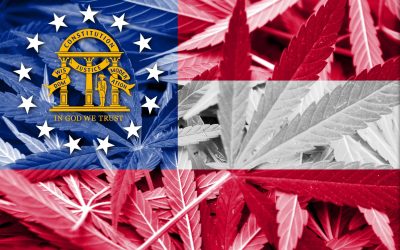As cannabis laws continue to evolve across the country, the introduction of medical cannabis programs has left many people with questions. What does having a Georgia medical card actually mean? What rights or risks come with it? At Alpine Dispensary in Helen, GA, we believe in educating our customers and clarifying the distinctions between medical and non-medical cannabis. It’s important to highlight that Alpine Dispensary does not sell medical-grade cannabis—our products are hemp-derived and compliant with the 2018 Federal Farm Bill. Here’s what you need to know about medical cannabis in Georgia.
What Is a Georgia Medical Card?
A Georgia medical card allows patients with qualifying conditions to legally possess and use low-THC oil (with no more than 5% THC) for medical purposes. Unlike other states with more expansive medical cannabis programs, Georgia’s program is tightly regulated
and does not permit the sale or use of smokable or edible cannabis products. Instead, the focus is solely on low-THC oil for conditions like epilepsy, Parkinson’s disease, and certain types of cancer.
True Medical vs. False Medical: Understanding the Difference
Medical cannabis programs vary significantly from state to state, leading to confusion about what “medical cannabis” actually means.
True Medical Cannabis Programs
In states like California or Colorado, medical cannabis programs are robust and designed to address a wide range of medical conditions. These programs often:
- Include access to high-THC products for severe conditions.
- Require rigorous testing and consistent dosing to ensure safety and efficacy. • Operate alongside recreational cannabis markets.
False Medical Cannabis Programs
Georgia’s program, like those in some other restrictive states, is considered by many to be a “false” medical program because:
- It severely limits the form and potency of cannabis products.
- It excludes many conditions that could benefit from cannabis.
- It doesn’t provide the infrastructure for dispensaries to supply medical-grade cannabis effectively.
The lack of variety and access makes it challenging for patients to get the relief they need, leaving many turning to hemp-derived alternatives, which are federally legal but not a direct substitute for medical cannabis.
Rights You May Lose with a Medical Card
While having a medical card may grant you access to cannabis products legally, it also comes with significant risks and restrictions. Here are some of the rights you may lose:
- Second Amendment Rights
Federal law prohibits anyone who uses cannabis, even for medical purposes, from purchasing or possessing firearms. When you apply for a firearms background check, you must disclose cannabis use, and having a medical card could disqualify you from exercising your Second Amendment rights.
- Employment Risks
Despite state protections in some areas, having a medical card does not guarantee job security:
- Many employers still follow federal guidelines, which classify cannabis as a Schedule I drug.
- Employees may face termination if they fail drug tests, even if they have a medical card and use cannabis legally under state law.
- Loss of Federal Benefits
Medical cannabis use can put federal benefits, such as housing assistance or veterans’ benefits, at risk. Federal programs are bound by federal law, where cannabis remains illegal.
Georgia vs. Other States: How Does It Compare?
To understand Georgia’s restrictions, let’s look at two other states with contrasting medical cannabis programs:
- Florida: Florida has a more expansive program that allows smokable cannabis, edibles, and high-THC products for patients with qualifying conditions. Patients have access to licensed dispensaries and a broader range of treatment options.
- Alabama: Like Georgia, Alabama’s medical cannabis program is restrictive, focusing on low-THC products. However, even Alabama has taken steps to expand its program to include edibles and other forms of cannabis.
Georgia’s program remains among the most limited, offering few options for patients and imposing significant barriers to access.
A Note from Alpine Dispensary: We Do Not Sell Medical-Grade Cannabis
At Alpine Dispensary, our products are derived from federally legal hemp and are not part of Georgia’s medical cannabis program. We specialize in high-quality, lab-tested CBD and hemp-derived products that comply with the 2018 Federal Farm Bill. While
these products can offer wellness benefits, they are not a substitute for medical-grade cannabis.
Conclusion: Know What You’re Signing Up For
Getting a Georgia medical card comes with potential benefits for accessing low-THC oil, but it also carries significant risks, including the loss of certain rights and protections. As the conversation around cannabis continues to evolve, it’s essential to stay informed and understand what your medical card really entails.
For those seeking alternative wellness options, Alpine Dispensary is here to help. Our knowledgeable team can guide you through our range of legal, hemp-derived products to find what works best for your needs.
Keywords: Georgia medical cannabis card, true vs false medical cannabis, Georgia low-THC oil, cannabis legalization risks, medical cannabis rights loss, Alpine Dispensary Helen GA, CBD alternatives to medical cannabis, hemp-derived cannabis products, Georgia cannabis laws.






0 Comments